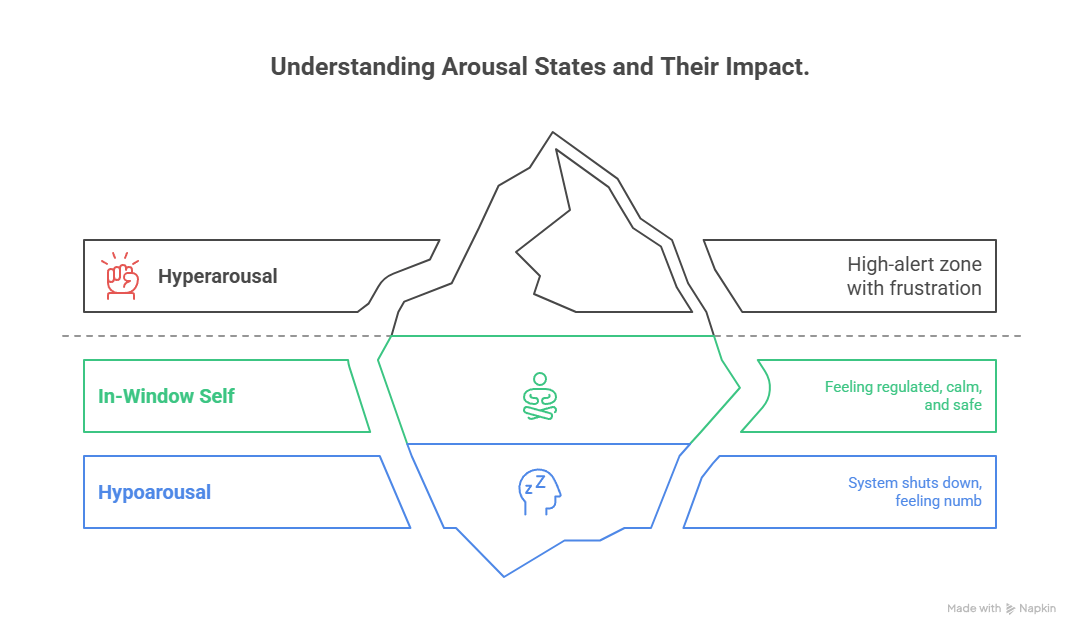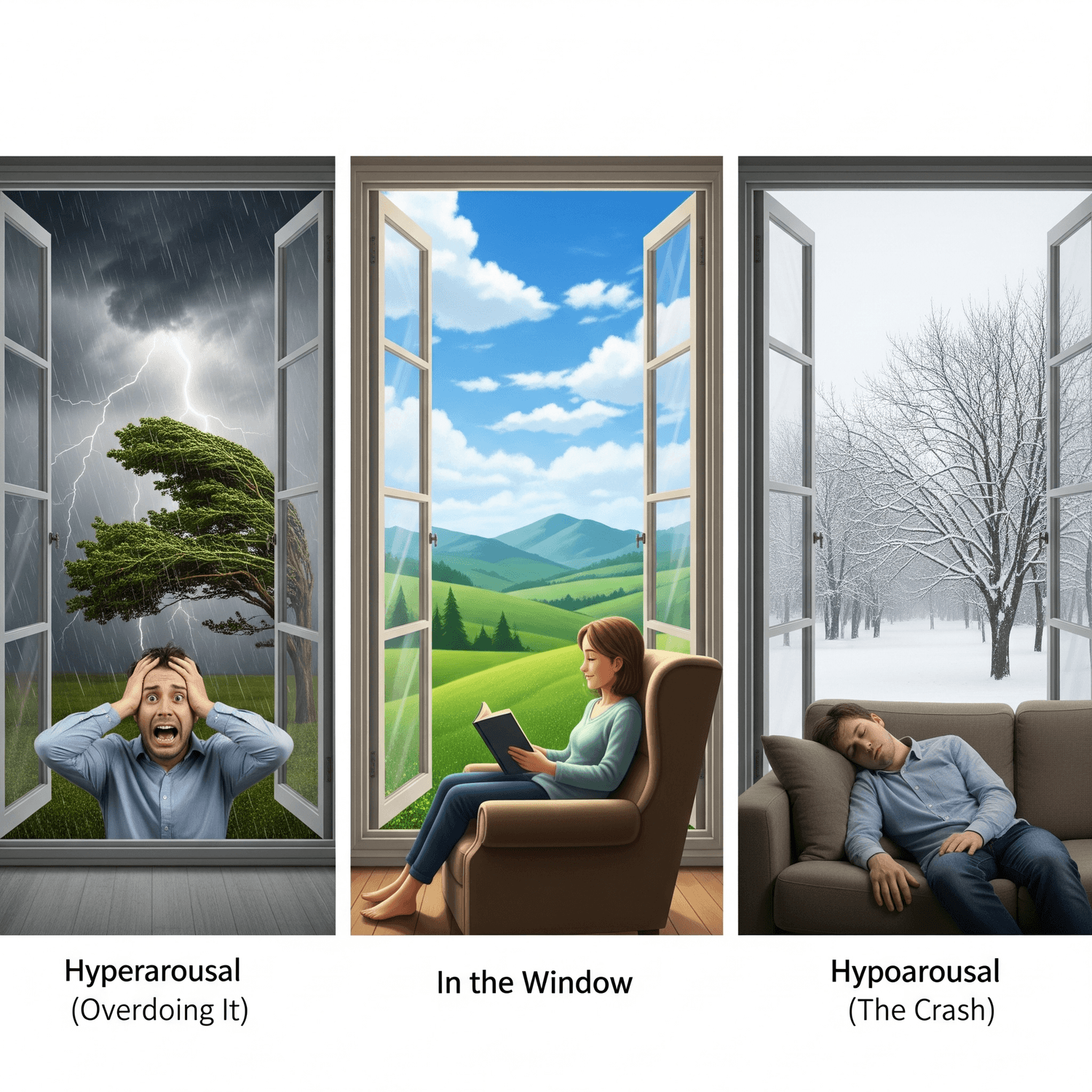The Window of Tolerance and Vestibular Disorders
Your Body's "Sweet Spot": The Window of Tolerance
Ever feel like you're on a tightrope, just one wobble away from falling? When you're managing a vestibular condition, it can feel like your body's "sweet spot" for functioning is tiny. This is where the concept of the Window of Tolerance comes in. It's a powerful tool to understand why your brain and body react the way they do and, more importantly, how you can gain back some control.
What Is the Window of Tolerance?
Think of it as your comfort zone, the space where you feel calm, regulated, and can handle life's challenges without getting overwhelmed. When you're in this zone, you're able to function most effectively. You feel alert, in control, and can cope with whatever life throws at you.
But life, especially life with a chronic condition like a vestibular disorder, can shrink that window. Stress or trauma makes it harder for you to stay calm and focused. A trigger, like overdoing it, can push you outside of this window. It is possible to understand what is impacting your window and the tools to expand it, and what knocks you outside of it.
Noticing Your "In-Window" Self
This is actually a place where you are feeling okay, and pretty steady. Some people do not think they are in this place very much, or for very long. When you're feeling good, it’s easy to get caught in the trap of doing too much. You feel calm, alert, and in control, so you push hard. You pack your schedule, ignore subtle signals, and do all the things you couldn't do before.

What Happens Outside the Window?
There are two sides to being outside your window of tolerance: hyperarousal and hypoarousal. Remember - your body is always aiming for internal balance, or 'homeostasis', therefore it is doing things to get you back to a state that it perceives is correct. When you're dysregulated, (this can be anything that sets the internal measuring level off and the sense of 'safety') whether by perceived imbalance vestibular wise, internal stress levels, you're not comfortable and don't feel in control.
Hyperarousal (The "High-Energy" End): This is the high-alert zone. You may feel frustrated, agitated, anxious, or angry. This might initially give you energy to do tasks you have not done for a while! When you overdo it with a vestibular condition, your symptoms can worsen, leading to increased dizziness, brain fog, or nausea. This can also cause you to eventually feel overwhelmed and out of control. You might feel the urge to flight (retreat/had enough) or fight (engage even more). Signs of hyperarousal include sweating, racing thoughts, and trouble sleeping, concentration or dizziness.
Hypoarousal (The "Crashed" End): This is the zone you hit when your system has been pushed past its limit and now shuts down; the 'brakes'. You may feel numb, zoned out, or disconnected both emotionally and physically. Symptoms can include exhaustion, feeling sluggish, or a decreased responsiveness. You might also struggle to concentrate or remember things.
Recognising your personal signs for each state is the first step toward expanding your window. You can do this by practicing mindfulness and other exercises. It's about learning your body's language so you can respond before you react.
STRATEGIES:
Each moment is a perfect time to get curious.
What does it feel like to be inside your window?
In this you feel regulated, calm, and able to learn. You may feel safe and present.
Paying attention now can prevent a crash later. It’s about building awareness, not just pushing through.
Notice, without judgement, if you have a tendency, or pressure with the life around you, to fill your days. Does this have an impact on your window or going out of it?
Have you noticed what the signs are for being out of your window? Are there any particular physical, emotional and cognitive signs?
At the moment, have you any particular strategies for these? Without judgement - how successful are they for you?

Let us know what you think in the comments!
YOU MIGHT ALSO LIKE

V.G.
About Verity Green
Based in Catterick Garrison, Richmond, Bedale, North Yorkshire and Online. Therapy and training with trauma, long term conditions and disability, adoption, care leavers, managing high conflict environments in the home, recovering from high control, and managing change from intense environments (such as sport, Armed Forces Community).
Updates in your Inbox!

Free Signup
You can Unsubscribe
Information is NOT sold
Approximately once a month
© 2025. All Rights Reserved




